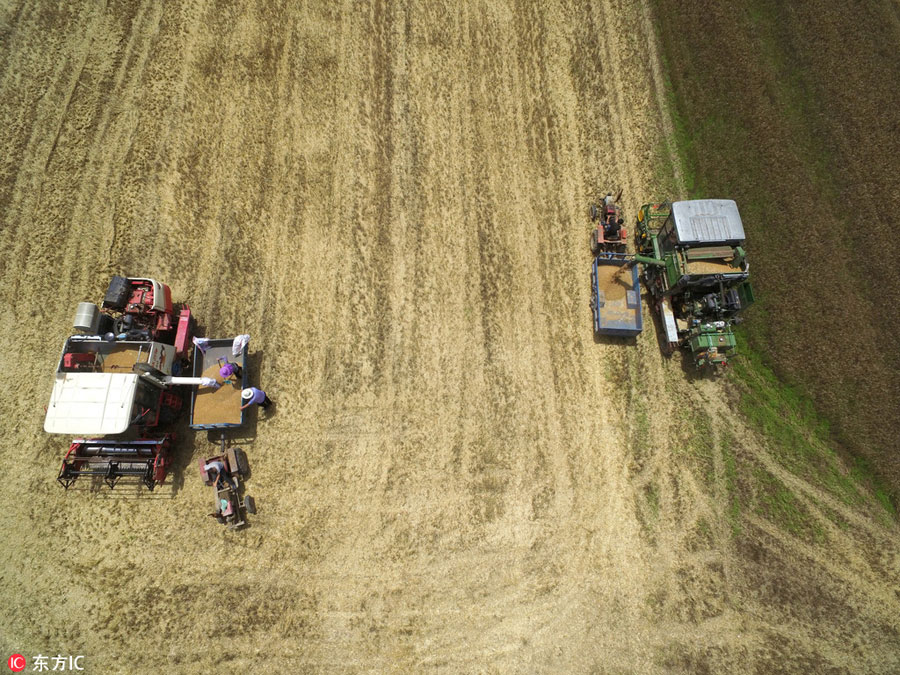Chinese scientists complete whole genome sequencing of ancient wheat seeds


CHANGCHUN - Chinese scientists have sequenced the whole genome of 3,800-year-old wheat seeds unearthed from Xinjiang Uygur autonomous region, decoding the food crop's spreading route into China.
Four Chinese institutes jointly conducted the research. The scientists extracted DNA from seven ancient wheat seeds discovered from Xiaohe and Gumugou cemeteries in Xinjiang, which is an essential geographic intersection between the East and the West.
Cui Yinqiu, a professor of the School of Life Sciences in Jilin University, involved in the research, said the dehusked and well-preserved seeds randomly selected from the archeological sites have the genomic similarity with wheat currently grown in Southwest China.
The scientists proposed that the common wheat dispersed from the Qinghai-Tibet Plateau in West China to the Yangtze River valley in central and eastern China.
The research provided detailed information on the origin, dispersal and genetic improvement for the cultivation of present-day wheat and was published on the latest issue of the international science journal "The Plant Journal."
- China planning to raise age limit for blood donors, shorten the minimum interval
- Breakthrough in BMI tech aids patients
- Chinese technique for making ultrathin metal films named top 10 scientific breakthroughs
- Former senior political advisor of Sichuan sentenced to 14 years
- Beijing has undergone dramatic improvements since 2017's revamped development plans
- AI open alliance launched to pool resources for innovation and application





































